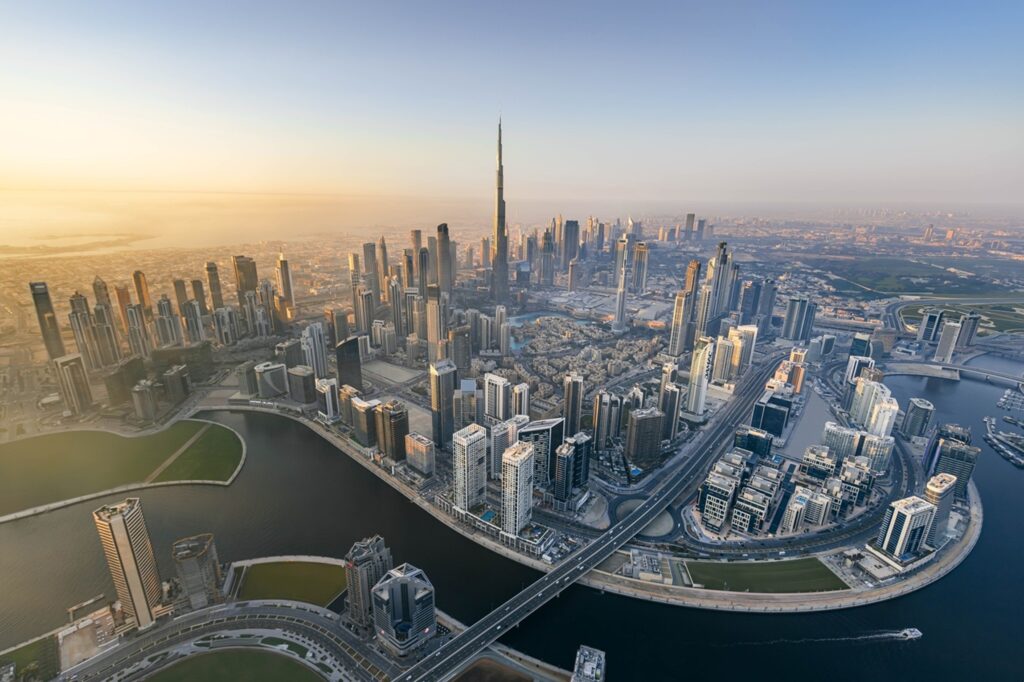
Dubai Sixth Most Expensive City in EMEA
Dubai, which is the wealthiest city in the Middle East and a booming financial hub, is the sixth most expensive city in Europe, Middle East and Africa (EMEA) and 12th in the global ranking this year, leading Swiss wealth management group Julius Baer said on Tuesday.
In its latest research entitled “Global Wealth and Lifestyle Report 2024,” Julius Baer, however, said that might further contribute to its appeal for wealthy residents. Dubai is one of the most robust and stable economic hubs in the Gulf, making it very attractive as a place of residence. Its real estate sector accounts for 8.9% of the economy and is showing impressive dynamism.
According to both the index and survey data by Julius Baer, real estate is a key asset in the Middle East, with prices in Dubai up 16% in USD terms and HNWIs spending more now and in the future on this category compared to any other region in our survey.
Despite this booming property sector and the steep price increases, Dubai’s residential property is relatively affordable compared to many cities in the region, the report said.
Within EMEA, Dubai is the most expensive city for a few key items, including men’s suits and ladies’ handbags. The steep prices are not deterring buyers, though, with 65% and 52% of those surveyed intending to spend more in the next 12 months on suits and handbags respectively.
“Higher than average spending on these discretionary items reflects the wealth of the city, which is now the 21st wealthiest in the world,” the report said.
In addition to no income, capital gains, or inheritance taxes, Dubai also boasts excellent infrastructure, fast growth, and a flourishing financial centre, with large numbers of global hedge funds, asset managers, and family offices moving in to serve wealthy residents.
Indeed, according to Henley and Partners, Dubai recorded a 78% increase in its millionaire population over the past ten years. Combined with its recently launched quality of life strategy, Dubai has cemented its status as a haven for wealthy citizens.
Singapore and Hong Kong Top
The 2024 index findings are less clear-cut than last year. While Singapore and Hong Kong still dominate the podium, the Asia Pacific (APAC) region dropped down the overall regional rankings to second place as a result of lower rankings for cities like Tokyo, which is now in 23rd place, combined with a buoyant return to prominence for Europe, Africa, and the Middle East (EMEA).
London now takes the final spot on the podium and every single European city has moved up the rankings this year, the report said.
Zurich has been this year’s runaway star performer, climbing further in the global ranking than any other city, jumping eight places to become the third most expensive city in EMEA and sixth in the world.
The rise can be attributed, for the most part, to the strength of the Swiss franc. It was the best-performing G10 currency of 2023, rising to a record high against the euro and achieving a multi-year high against the dollar.
One of the reasons for the resilience of the currency is the Swiss National Bank’s strategy over the past year. It has now sold off many foreign assets purchased during the volatile economic climate in Europe from 2015 onwards.
Zurich is one of the most cosmopolitan and dynamic cities in Europe, with a thriving service-based economy. Its strengths across finance, life sciences, and environmental sciences are among those underpinning much of the growth in the Swiss economy over the past year.
Hence, it is no surprise to most that Zurich is an expensive city as three-quarters of the Lifestyle Index items here are in the five most expensive regionally. The price of a business class flight is up 30% year-on-year (in USD), while the price of a man’s suit is up 18%.
On the plus side for locals, salaries here are also comparatively high, which makes relative costs more manageable. Although this year has been difficult for the Swiss financial industry, Julius Baer’s survey showed that trust in Swiss financial institutions remain high among all HNWIs, the report added.















